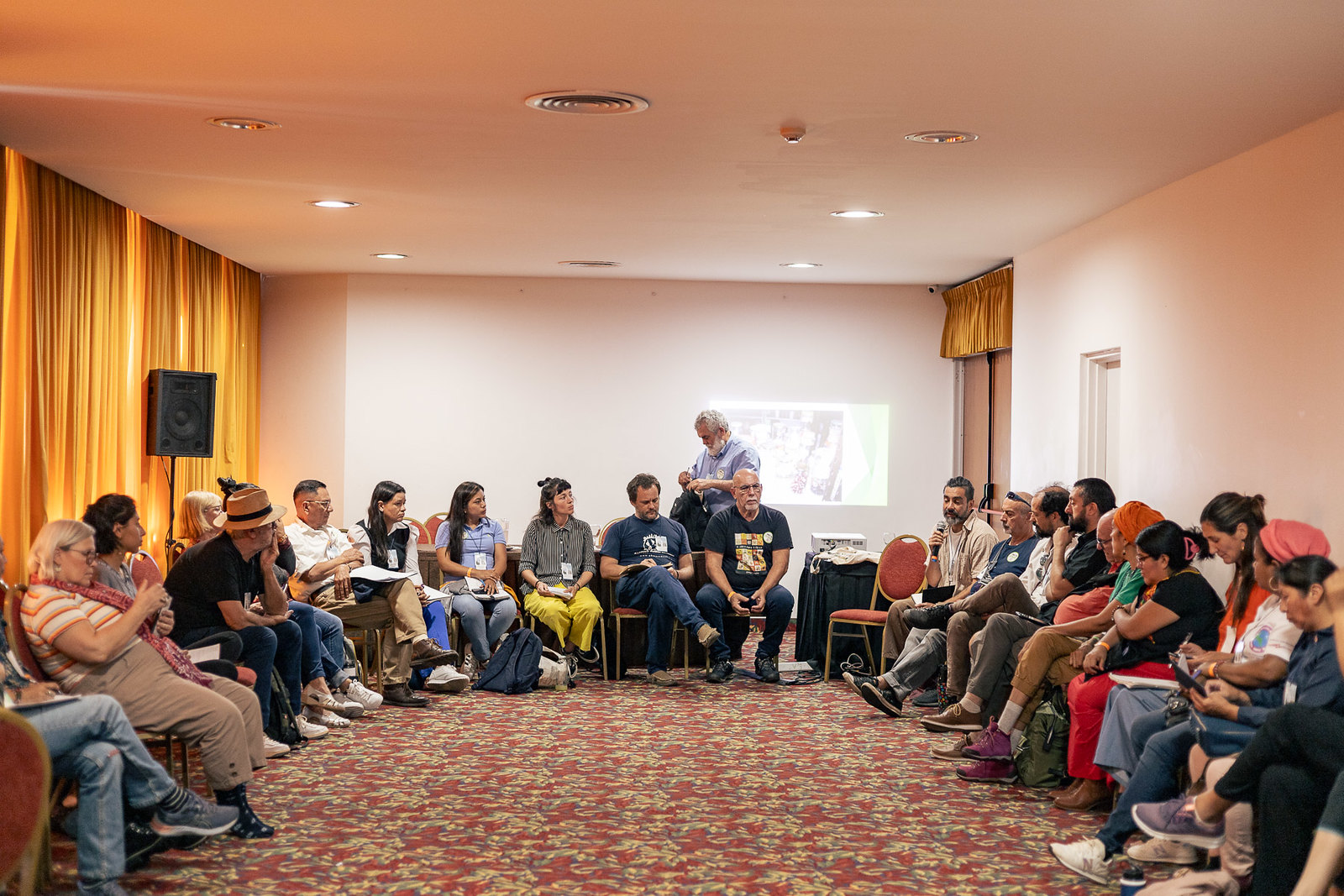The 5th People's Health Assembly champions holistic health transformations
On the second day of the 5th People's Health Assembly (PHA 5), discussions broadened to encompass various forms of transformation: from reimagining health systems to better meet people's needs, to dismantling embedded elements of imperialism and colonialism across societies, and fostering movements that enhance women's participation and leadership.
Highlighting the day was a dialogue on traditional and ancestral knowledge systems, led by Sandra Payan from the People's Health Movement (PHM) Colombia. This conversation followed the PHA 5's formal inauguration, which was marked by an ancestral opening ceremony featuring activists from various global regions.
PHM, in a concept note framing the discussion on ancestral and popular knowledge, emphasized, “Our peoples possess holistic health views that transcend the narrow, mechanistic, individualistic, medicalized, and commercialized perspectives of dominant health models. There is an urgent need for transformations that bring these comprehensive views to the forefront of current health systems.”
Prior efforts aimed at creating environments conducive to the exchange of ideas on biodiversity, mutual support, reciprocity, participation, and equality have set the stage for PHA 5. The campaign for such environments extends from Latin America to Australia, as demonstrated by insights shared by Vivian Camacho, National Director of Traditional Medicine in Bolivia, and Pat Anderson, an advocate for the health and rights of Aboriginal and Torres Strait Islander peoples in Australia.
Camacho and Anderson discussed integrating Indigenous perspectives and needs into health systems, often requiring a radical transformation of Western medical paradigms. Despite acknowledging the challenges to this change, they also highlighted opportunities for optimism and advancement, attributing them to years of activism and struggle.
The day also featured complementary insights from Ángela Romano of the Laicrimpo Health Movement (Argentina) and spiritual guide Leopoldo Méndez Martínez (Guatemala), who reflected on the influence of local communities and territories in fostering practices of Buen Vivir and ancestral health systems.
The Assembly organizers concluded, “The ancestral and indigenous knowledge we aim to acknowledge and bolster challenges the dominant health narrative that is disease-focused, fragmented, homogenizing, and complicit in the expropriation of bodies and lands, serving the interests of pharmaceutical companies and the prevailing global economic system.”


